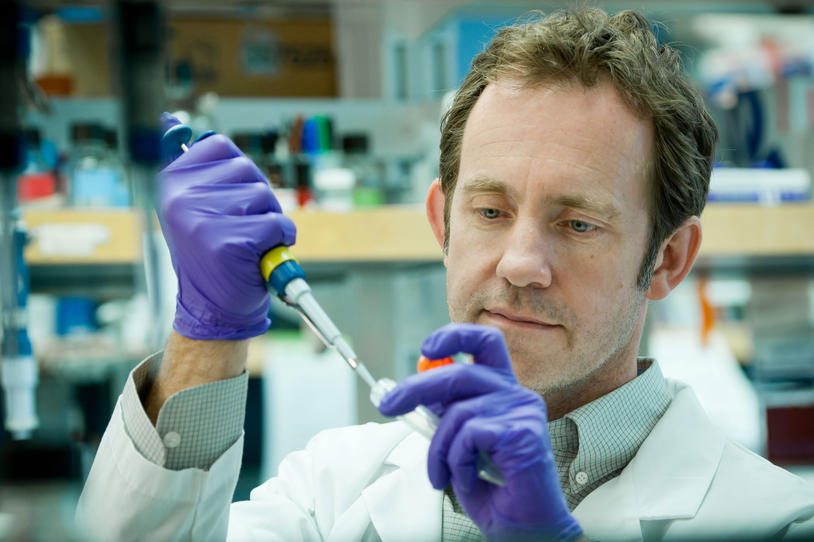
A few weeks ago, we reported that Michael J. Fox Foundation Scientific Advisory Board Matt Farrer, PhD, and colleagues had linked a new gene to Parkinson’s disease (PD). Dr. Farrer’s team made the discovery thanks largely to the long-standing and generous investment of a Canadian Mennonite family of Dutch-German-Russian ancestry.
The family first agreed to participate because of the high prevalence of PD in their family – six brothers all developed late-onset PD. Their commitment to research has spanned the past 28 years.
We spoke with Dr. Farrer as well as Foundation VP of Research Programs Brian Fiske, PhD, to learn more about the link between PD and a mutation in the gene, called DNAJC13. In the conversation, we discuss what this latest discovery, and others like it, might mean for finding better treatments for the disease, as well as the unique commitment to science made by this family.
Below, excerpts regarding the family’s decision to participate, and insights into the discovery’s place in PD research.
Read the entire interview with Drs. Farrer and Fiske.
MJFF: Tell us more about how this study came about.
Dr. Farrer: In 2012, about 70 family members gathered for a reunion in a church hall on the outskirts of Saskatoon. They’d come from several provinces across Canada. I talked to them about genetic research and how far we have come identifying the molecular basis in PD. I explained that further participation would mean a lot for science and humanity, and would ultimately lead to better treatments to PD. It was daunting to instigate a scientific rather than a medical discussion, with a religious group. However, their reaction was quite humbling. One after another the patriarchs stood up and announced that they would consent to take part. By the end of the afternoon, basically everyone had a brief clinical exam and provided a blood sample.
MJFF: Does a mutation specific to a particular family like this one offer insight into Parkinson’s disease on the whole?
Dr. Fiske: Any time we can learn more about the machinery of our brain and how changes in it may cause disease, we are learning valuable information. While it’s too early to know if mutations in the same gene will be seen in the broader PD patient population, what is interesting here is that Dr. Farrer and his team have found a mutation that points to one mechanism by which PD may be triggered. In this case, the DNAJC13 gene is involved in a major process for trafficking membrane-associated proteins from one part of the cell to another. If this recycling process is disrupted it could lead cellular dysfunction and potentially cell loss.
Dr. Farrer: By analogy the role of genetic discovery in developing treatments for diseases like PD is rather like trying to fix a car when the engine refuses to start. The first step to getting it running is to have a rudimentary understanding of what the different components of the engine do – the battery, distributor, spark plugs, valves, pistons etc. - and how these components work together. While susceptibility to PD may vary according to individual – whether it’s the battery or spark plugs – the overall system perturbed, the engine, is likely to be similar in all patients. The “molecular machinery” discovered through human genetics provides novel targets for new, more effective treatments.